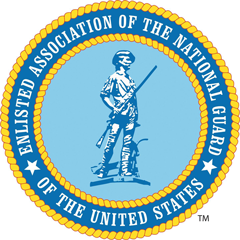Only seven military service organizations were asked to testify before the Senate and House Armed Services Committees regarding TRICARE reform in March. Of those seven, only EANGUS and one other organization were invited to both hearings.
Congressional Testimony:
On March 8, Scott Bousum, EANGUS Legislative Director, testified on the record before the Senate Armed Services Committee’s Personnel Subcommittee. Scott argued that Guard and Reserve health care should be managed by the Office of Personnel Management (OPM) utilizing the Federal Employee Health Benefit Plan (FEHBP). If Congress listens to EANGUS, members of the Guard who want access to private health insurance can access great options offered on FEHBP and technicians, already on FEHBP, could have access to TRICARE.
On March 17, Frank Yoakum, EANGUS National Office Executive Director, testified before the House Armed Services Committee’s Military Personnel Subcommittee. Frank built on Scott’s testimony before the Senate, and expressed that we should make better use of urgent care clinics instead of depending on Emergency Rooms for after-hours care. Like Scott, Frank argued that Federal employees should be able to enroll in TRS. Frank also explained the detriment placed on members of the National Guard called to title 10 duty using 12304b.
TRICARE Reform: Congress is considering TRICARE reforms. Changes effecting Reserve Component servicemembers will not be considered until 2017. EANGUS is well-positioned to ensure that the National Guard benefits when Congress tweaks health care access and cost. While potential changes are one year away, EANGUS believe that Congress could legislate that DOD provide a health care allowance to National Guardsmen and women to purchase health care coverage appropriate for them and their families. EANGUS staff are socializing its policy views with private health insurance companies to coordinate efforts. There is a lot more to come on TRICARE reform in the months ahead. The EANGUS National Office needs your voice to be effective, please get involved.
12304b Duty Status: The EANGUS National Office is outspoken about the use of 12304b orders. Relating to health care, Guardsmen or women do not have access to pre-mobilization or Transitional Assistance Management Program TAMP health care. EANGUS has encouraged Congress to work with DOD to improve access to benefits not currently afforded by 12340b, and EANGUS is optimistic that positive change will be implemented this spring.
Survivor Benefit Plan: Inactive Duty Training (SBP/IDT): The EANGUS National Office has also been outspoken about inequities related to the death of a servicemember during inactive duty training. At present, the annuity payments are based upon calculations of base pay at the time of death. If a member of the National Guard dies during a training mission, serving alongside an Active Duty servicemember, the surviving family members receive less financial assistance than the surviving family members of the Active Duty servicemember. EANGUS has encouraged Congress to work with DOD to fix this inequity, and EANGUS is optimistic that positive change will be implemented very soon.
Servicemembers Civil Relief Act Rights Protection Act of 2015: In conjunction with its coalition partners, the EANGUS National Office signed a letter of support for S. 2331, the Servicemembers Civil Relief Act (SCRA) Rights Protection Act of 2015. If successful, the legislation would ensure forward deployed servicemembers’ SCRA rights are protected, even in cases of forced arbitration. Forced arbitration has negatively affected servicemembers, particularly relating to mortgage origination documents, automobile leases, and student loans. Please look for legislative calls to action from the National Office in support of S. 2331.
Note: This information will also be included in the Roll Call Wrap Up
